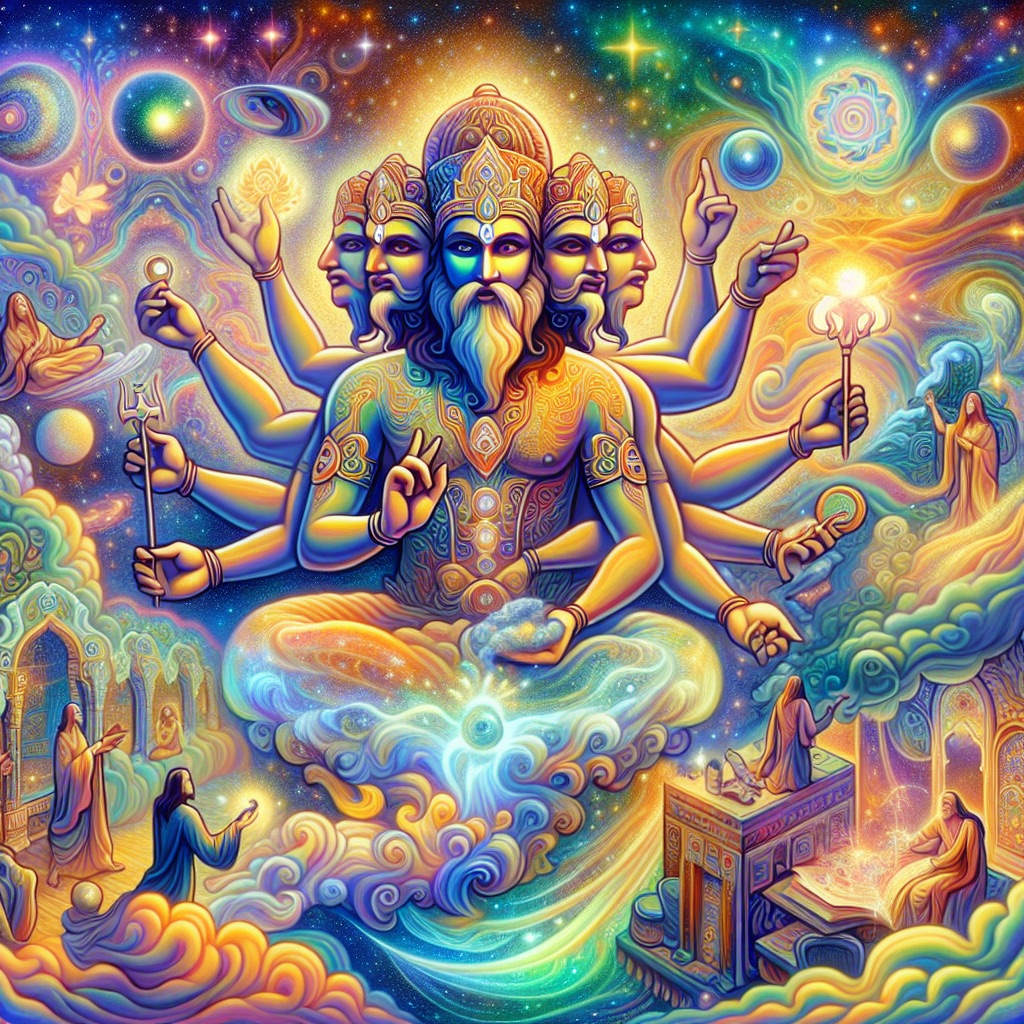Invocation
My speech is established in mind, and my mind is established in speech. May you manifest, may you manifest! May the truth of the Vedas heard by me not leave me. For days and nights, I will reflect on the divine law and the truth. May I become established in the truth, and may the teacher be established in truth. May the truth protect me, and may the truth protect the teacher - may truth protect the teacher! Peace, peace, peace.

